Kyle and Ashley Johnson are one of those “opposites attract” kind of couples. She’s a Tennessee mountain girl with a penchant for “screamo” music, raised to buckle down for winter with extra canned goods and a rifle on hand. Kyle, on the other hand, is a polite South Carolina guy with a classic country playlist, whose idea for a first date involved “an extended cup of tea.”
They married in 2019, and their tastes moved closer together over time. What differences remained worked for them. At least until September 2024, when the remnants of Hurricane Helene came barreling toward their home in Jonesborough, Tennessee.
They hadn’t argued much before. But all of a sudden, they were on opposite sides of a high-stakes decision: Should they leave or should they stay?
“He’s like, ‘I’m going to pack everything up and get it up the mountain. We’re going to go up the mountain,’” Ashley said. “And I’m just sitting there going, ‘No, I’m going to stay right here in my house.’”
Kyle tried to get Ashley ready to flee. As the storm got closer, he began to prepare travel carriers for their dog and four cats. He had grown up with hurricanes, felt he’d seen enough to know when it was time to evacuate. But Ashley was reluctant to leave their home. They had bought it in March 2020, right before the housing market had become untenable for middle-class couples like themselves. She had supplies for an emergency like this and didn’t want to pack up their pets. Her instincts told her to stand her ground.
As they went back and forth, the rain poured down. The nearby Nolichucky River continued to rise, amplified by the trillions of gallons of rain that had poured into western North Carolina and headed downstream.
Kyle pointed to the windmill across the street. When that goes underwater, then we’ll know we’re in trouble, he said.
A few hours later, it disappeared beneath the waters.
Warnings blared on their phones that anyone within 2 miles of the Nolichucky needed to leave. They watched as the fire department evacuated some of their neighbors. Before they could make a final decision about what to do, the water had surged over the road, and they were on their own. They watched water rise to the top of their neighbor’s home, then watched that house float away.
With power lines and cars gone, a silence swallowed their neighborhood. There were only birds and the sound of the rising, rising river.
Still, Ashley didn’t want to leave. And Kyle didn’t want to leave without her.
So they didn’t.
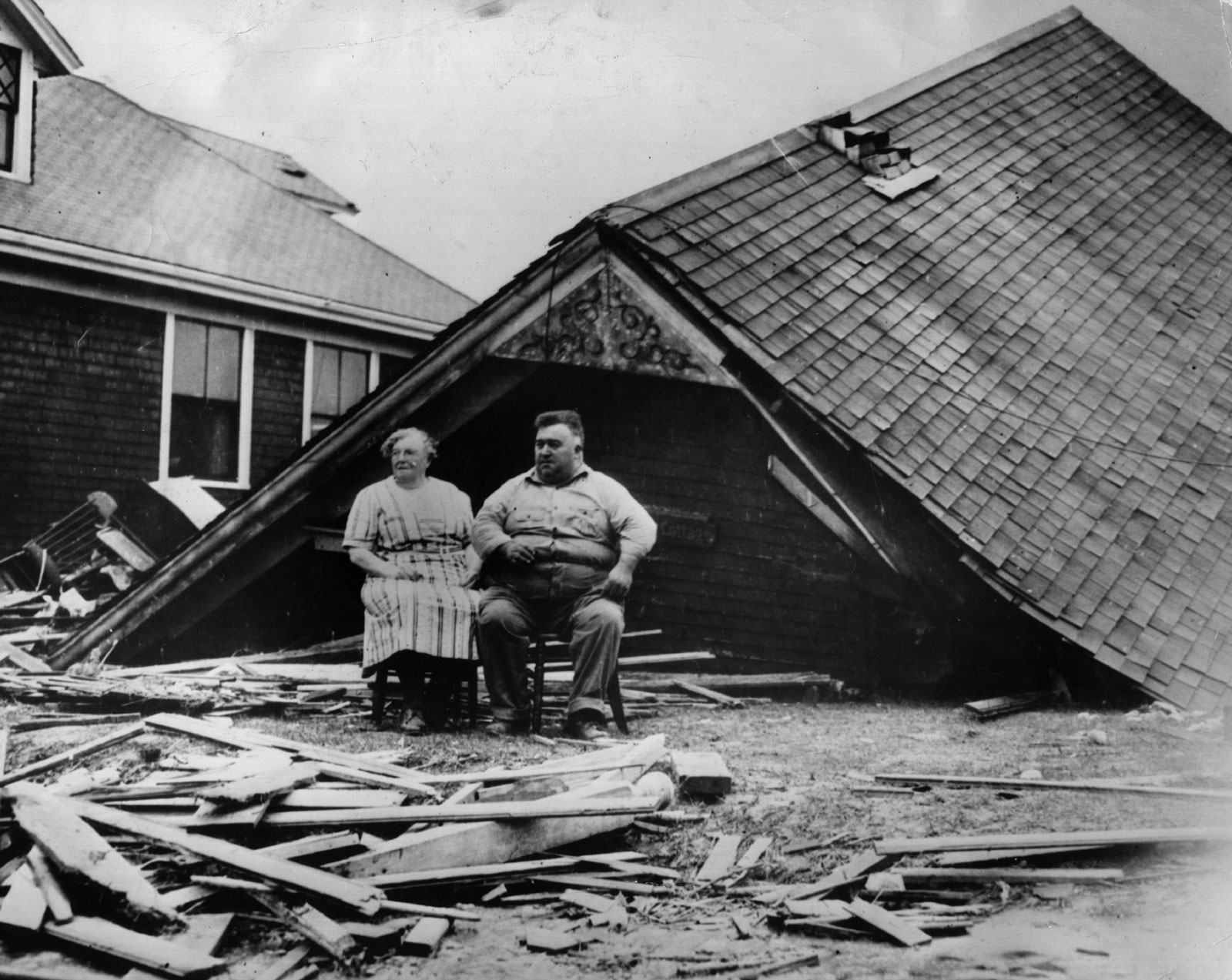
Keystone / Getty Images
Hurricanes don’t just damage homes and roads — they disrupt daily life, tear families apart, and strain mental health. They can upend entire lives, creating flashpoints in people’s most intimate relationships.
The mental health toll of hurricanes is staggering, with 20 to 30 percent of survivors developing depression or post-traumatic stress disorder. That can mean flashbacks, nightmares, dissociation, and more. Relationships are already hard enough “without adding a horrific hurricane on top of it, right?” said Kelly Caniglia, a Chapel Hill trauma therapist whose virtual clients include Helene survivors.
“You put two humans in a space together that now have PTSD … from this big, huge, precipitation event — that impacts relational dynamics, that impacts how we talk to each other, how we show up for each other,” she said.
Studies reinforce the toll extreme weather events can take on relationships. After 1989’s Hurricane Hugo, for instance, couples in South Carolina counties where a disaster was declared divorced at higher rates than in less-devastated areas. But the data also tells a more complicated story: Marriage and birth rates also climbed in those same hard-hit areas. The researchers suspected that surviving a life-threatening disaster motivated people to reevaluate what’s important to them, sometimes drawing them closer, sometimes pulling them apart.
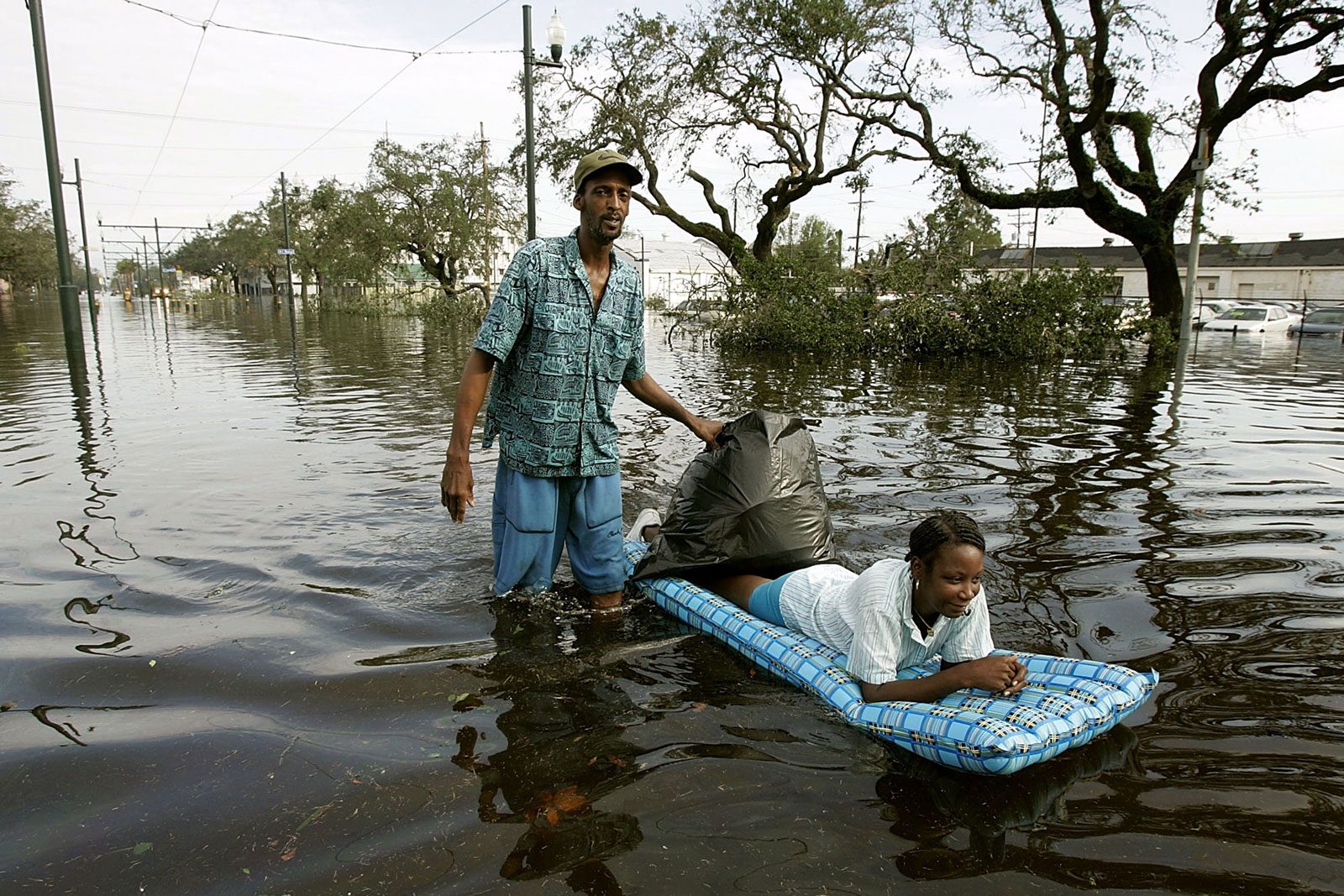
Mark Wilson / Getty Images
With climate change fueling stronger storms and more intense rainfall, more and more relationships may face that kind of test. Some experts argue that a warming world is already destabilizing marriages and leading to higher divorce rates, with flooding and extreme temperatures as culprits.
For Hurricane Helene, preliminary estimates suggest that the warming planet made the rainfall about 10 percent heavier. That doesn’t sound huge on its face, but any additional rainfall is devastating since hurricanes already unleash massive amounts of rain that towns aren’t designed to handle — particularly in inland areas like Jonesborough, where Kyle and Ashley live.
Now, a year after Helene, many parts of western North Carolina and East Tennessee are still in recovery. Some roads remain washed out. Mud and debris piles still sit where homes used to be. The physical toll is obvious. But the emotional toll — particularly on couples — is less visible and no less real.
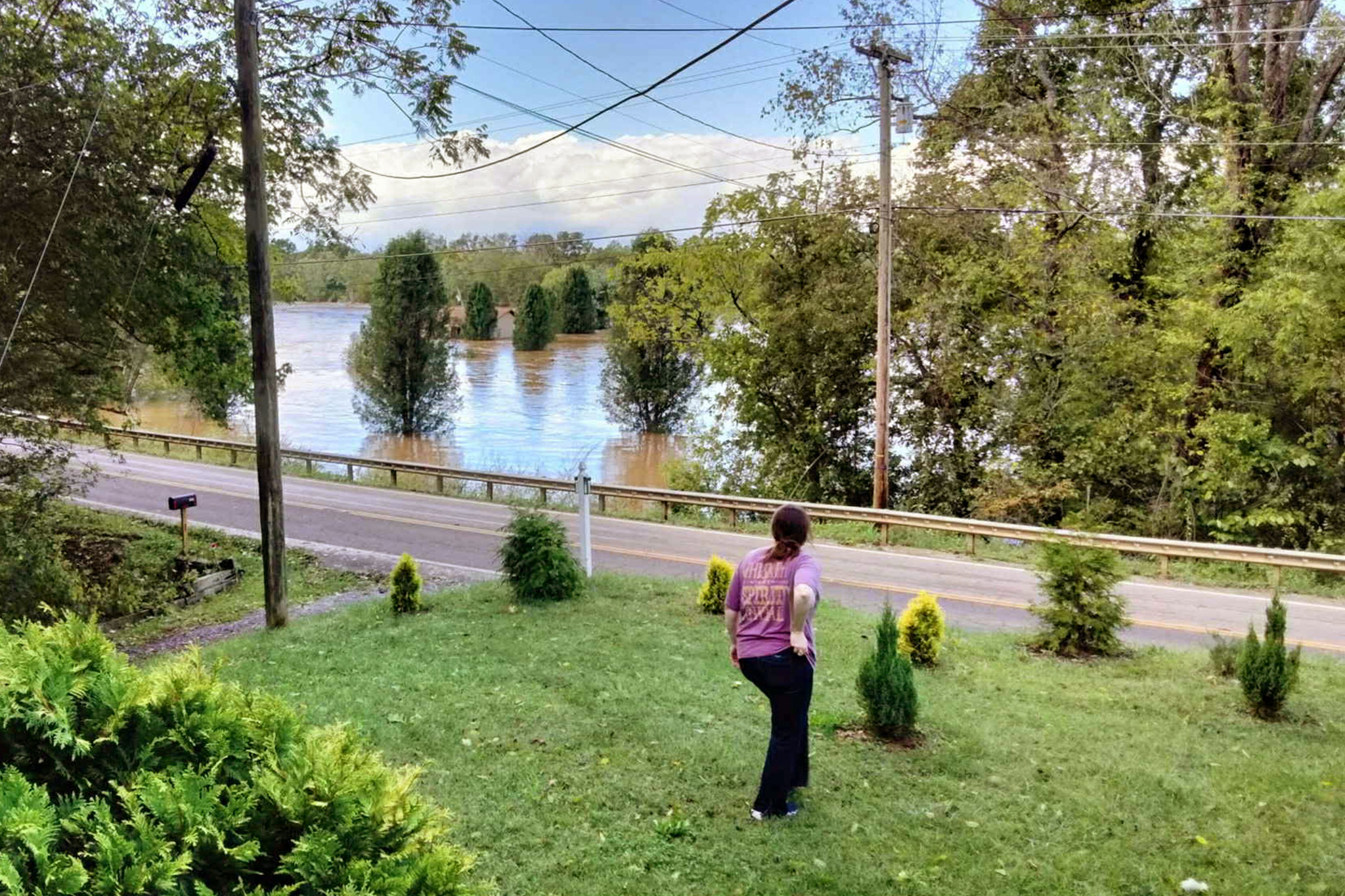
For Kyle and Ashley, much of their personal storm started after Helene passed over.
Somehow, their house had survived the floodwaters. Kyle likes to joke that Ashley stared down the floodwaters from the porch, rifle in hand, and scared them back down into their banks. After several tense days, the water receded, leaving behind a thick coat of mud.
With roads impassable, they were stuck. Everyone around them was gone. They missed work. Cell service was down. At one point, they learned they’d been officially reported missing.
And that’s when it hit Ashley.
“We switched roles,” she said. “So, where Kyle started becoming more calm, I started becoming more —”
“‘— Oh my God, what did we just go through,’” Kyle finished for her.
Ashley began to panic. She had nightmares. They dealt with a curfew, and for three days, were essentially marooned, with road closures preventing easy travel. Despite their stocked pantry and spare supplies, she feared that looters might show up, that no one would be able to help. They heard gunshots and screaming at night, which, to Kyle, was more a sign of other, hunkered-down neighbors panicking. “Everyone was very apprehensive and in defensive mode,” Kyle said. They barricaded their driveway with a car.
Their isolation felt total. It was just the two of them, as helicopters droned overhead.
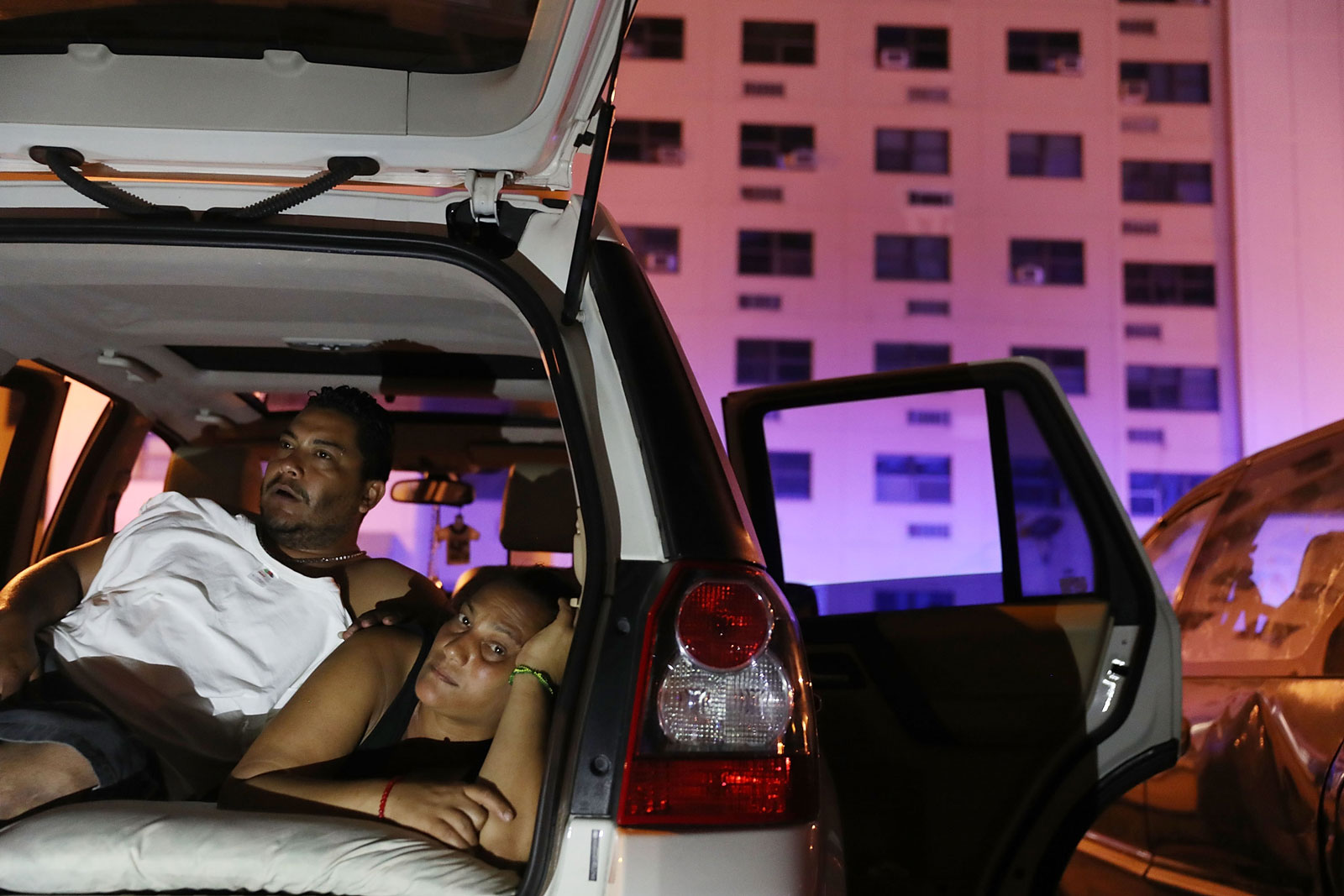
Joe Raedle / Getty Images
Debbie Sturm, a professor of counseling at James Madison University who has been interviewing Helene survivors, said the period following a disaster, with couples frustrated that help still hasn’t arrived, can be particularly tough. As the weeks drag on, they may be unable to return home and struggle to track down a new job or take care of kids who still aren’t back in school. “All of the day-to-day things grate on you — that’s the stuff that will again put pressure on the pressure that was already there and make it hard to navigate,” Sturm said.
A 2012 study of 40 low-income women who survived Hurricane Katrina found that long separations and unemployment made it harder for them to emotionally connect with their partners. “I’m like, ‘You’ve got to get a job. And I’m pounding it in his head,’” said one 23-year-old participant. “And it actually got to the point to where I called the wedding off. I told him, screw him, I don’t need this. I could do better by my damn self.”
For couples who already have a strained relationship, a natural disaster can be the last straw.
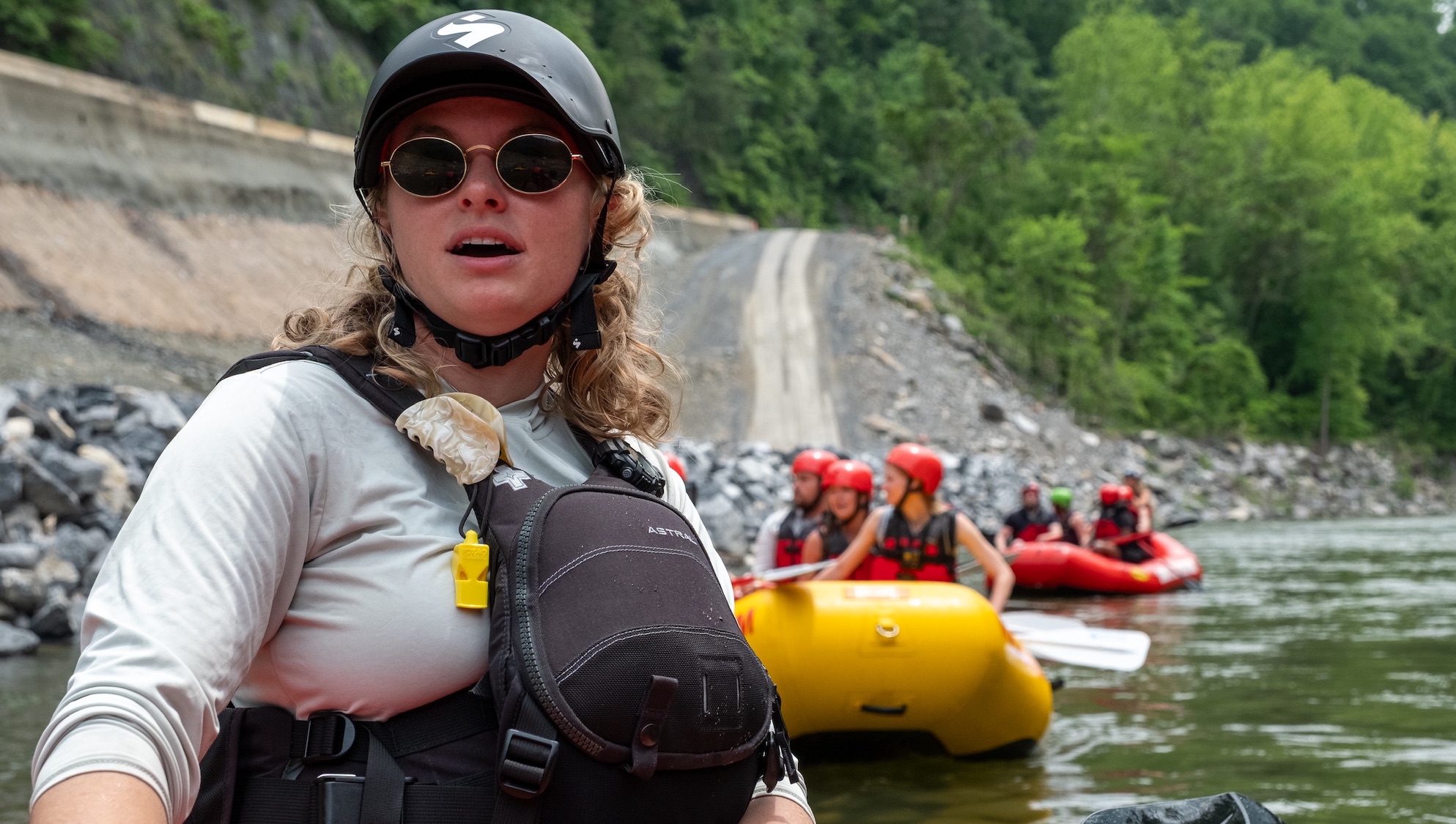
That was the case for Sara, 40, who asked to be identified with first name only because of ongoing divorce proceedings. Sara knew even before Helene struck that her marriage was already cooling off. Her husband was often on tour with his band while she was at home, working on the marketing team for a regional health care group. The two barely saw each other. When Helene knocked out electricity at their home, she couldn’t charge her insulin pump. With her health at risk, she decided to temporarily relocate from her home in Clyde, North Carolina, and drive toward family in Oklahoma. But as she packed her things, her husband seemed … indifferent. And he didn’t offer to come with her.
“Maybe he just wanted me out of the house,” she said. “Maybe he just wanted me gone.”
Sara didn’t feel upset about it, just packed up and left. She stayed in Oklahoma for weeks. And they barely texted. When power came back on, she started the long drive back, but found herself less than eager to get home. And the drive gave her a lot of time to think.
“I found myself procrastinating and, like, really taking my time,” she said. She stopped here to get a burger, there to take a walk. When she got back, he went immediately on tour again until Thanksgiving. And when he returned, they decided to divorce.
The two things Sara was most afraid of had come to pass: the end of her marriage, and the most horrific disaster ever to befall her community. But surprisingly, she says she’s OK. A year after Helene, her divorce is almost final. She’s sold her house and moved to Atlanta, where she’s having the time of her life and trying to date again
“Without having that kind of energy to make a change, it might not have happened,” she admitted.
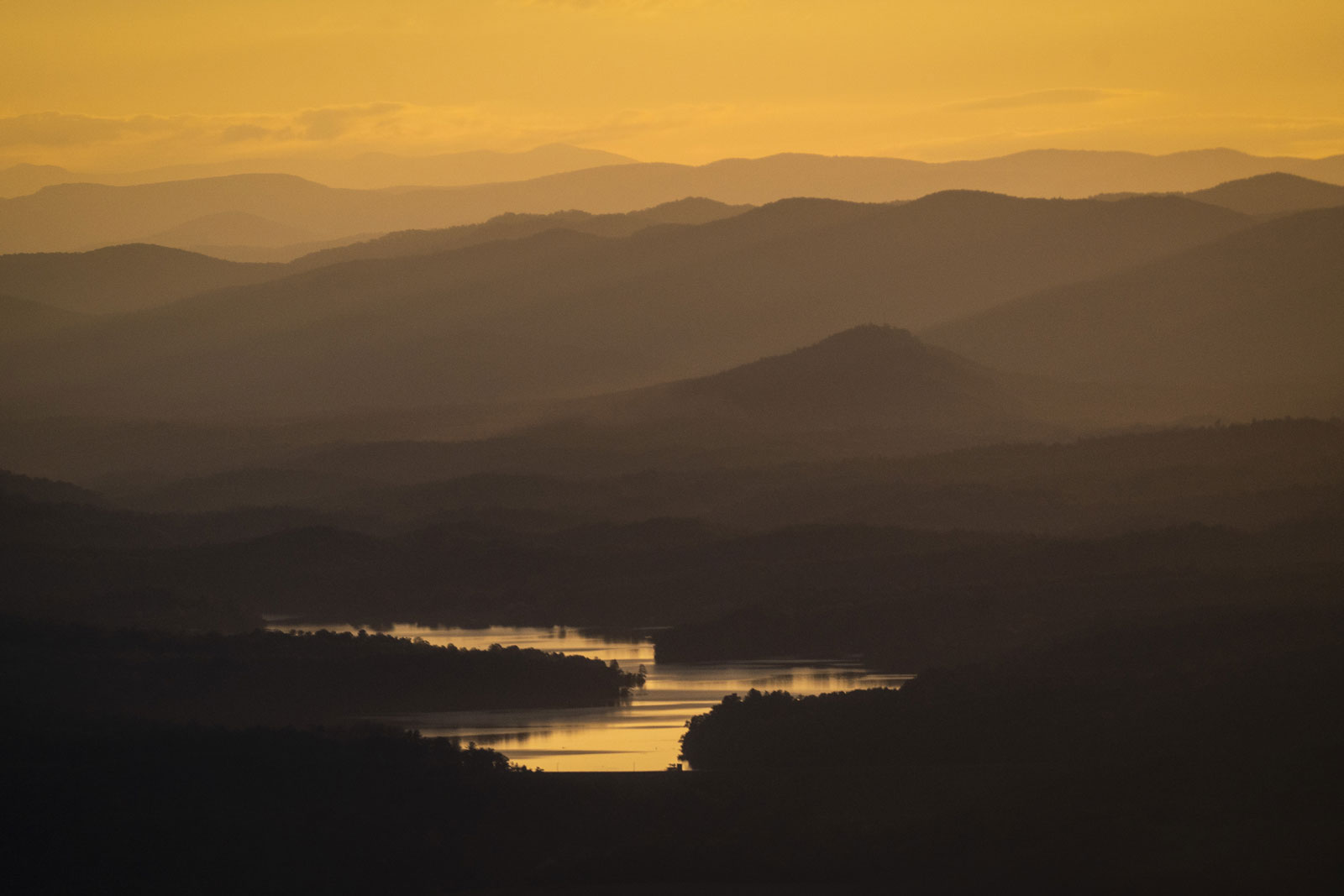
Jabin Botsford / The Washington Post via Getty Images
Helene created moments of clarity for others, too. Alexandra Lowman, a restaurant worker and artist who lives in Asheville, had broken off a 10-year marriage a month before the storm, but she and her ex-husband still called each other daily. When Helene took the cell towers out and he left town for a bit, their line of communication was severed. The loss of that constant communication helped her clear her head.
“I didn’t have time to wonder if I was messing everything up,” she said. In the eye of the storm of a century, she put off any anxieties about her future and focused on helping her friends and neighbors. “It kind of provided this strange little chrysalis period of, I didn’t have to figure anything out right away.”
When she began dating again, though, she found the storm had complicated what she wanted out of partnership. Did she want someone who went through the storm and understood what she had been through? Or did she want to start fresh, date someone who was more free of the trauma? She tried the latter, meeting someone from Charlotte, North Carolina, online. Conversations got stuck, though, when Helene inevitably came up, difficult memories resurfaced for Alexandra, and the new boyfriend didn’t really know how to respond.
“It really kind of solidified the fact that people even in our own state just didn’t know the sheer level of destruction,” Alexandra said. “And I think that was frustrating and clearly not his fault. You know what I mean? But it really did kind of put into perspective how isolated we were and still are in the recovery period.”
She and the new guy from Charlotte were on the rocks for a while, and they had just broken up in August — before immediately deciding to give it another go.
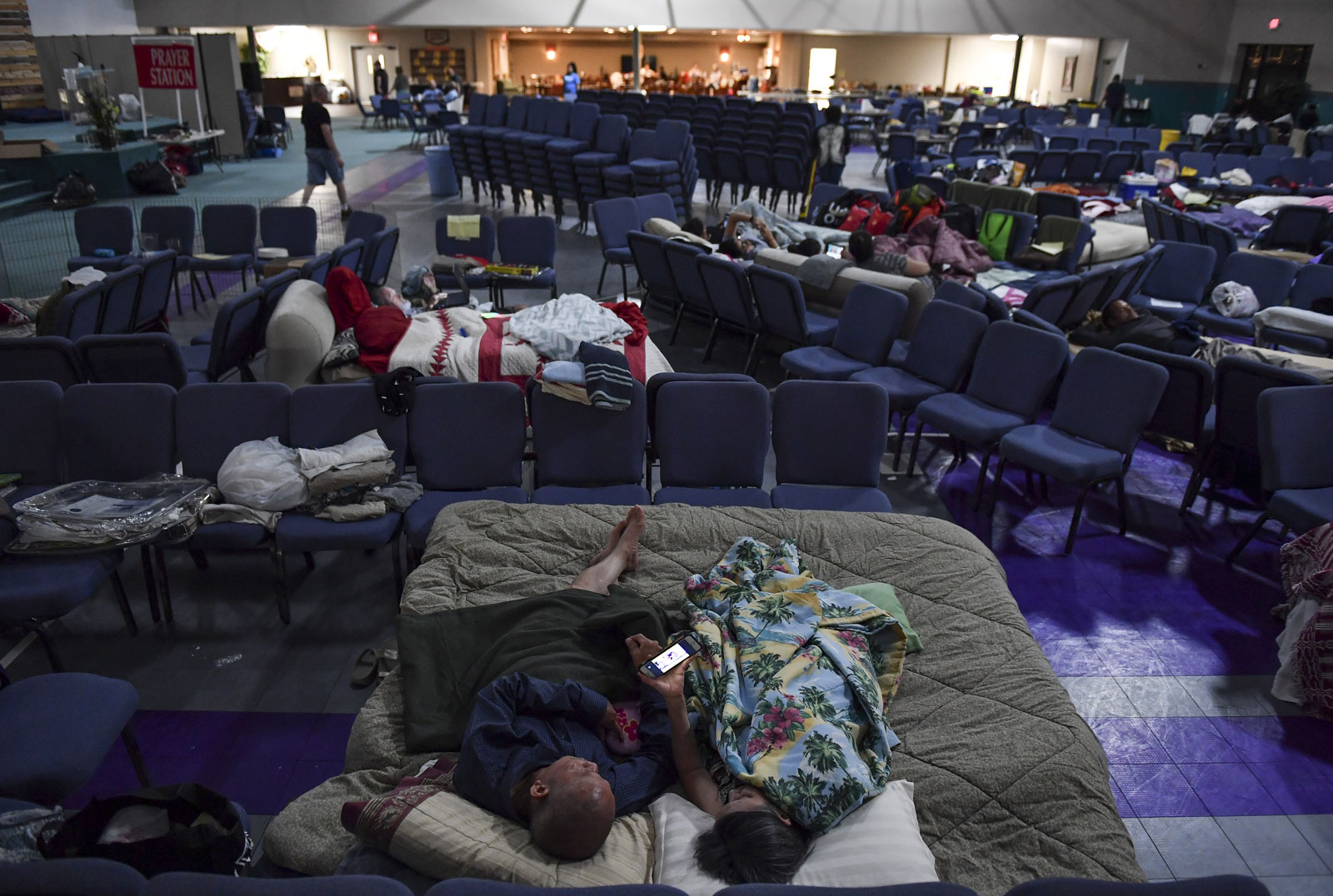
Ricky Carioti / The Washington Post via Getty Images
For many relationships, hurricanes aren’t good or bad — they’re both. One study among newlyweds in Texas in their first few years of marriage found that their satisfaction with their relationship was, as often happens, slowly declining — until Hurricane Harvey hit in 2017. “We saw this pretty surprising but significant bump in satisfaction from before to after the hurricane,” said Hannah Williamson, a professor of human development and family sciences at the University of Texas at Austin. But it only lasted a few months, before levels returned to normal.
It’s such a common experience that the initial period right after a disaster is sometimes called a “honeymoon” period. That’s typically followed by the “disillusionment” phase, which can be hard even for partners in strong relationships. “A couple can still feel like, ‘Oh gosh, we’re kind of dipping.’ It’s like, no, you’re actually leveling out. You’re stabilizing, and probably learned a lot about how you can count on each other, how you come through in a difficult time,” said Debbie Sturm, the professor at James Madison University.
Relationships that survive an upheaval like Hurricane Helene will never be exactly the same, said Kelly Canilgia, the trauma therapist in Chapel Hill. But in her experience, couples who make it through come back stronger than before. “When there’s this kind of element of trauma, this element of disaster in there, the repair is almost 20 times stronger,” she said.
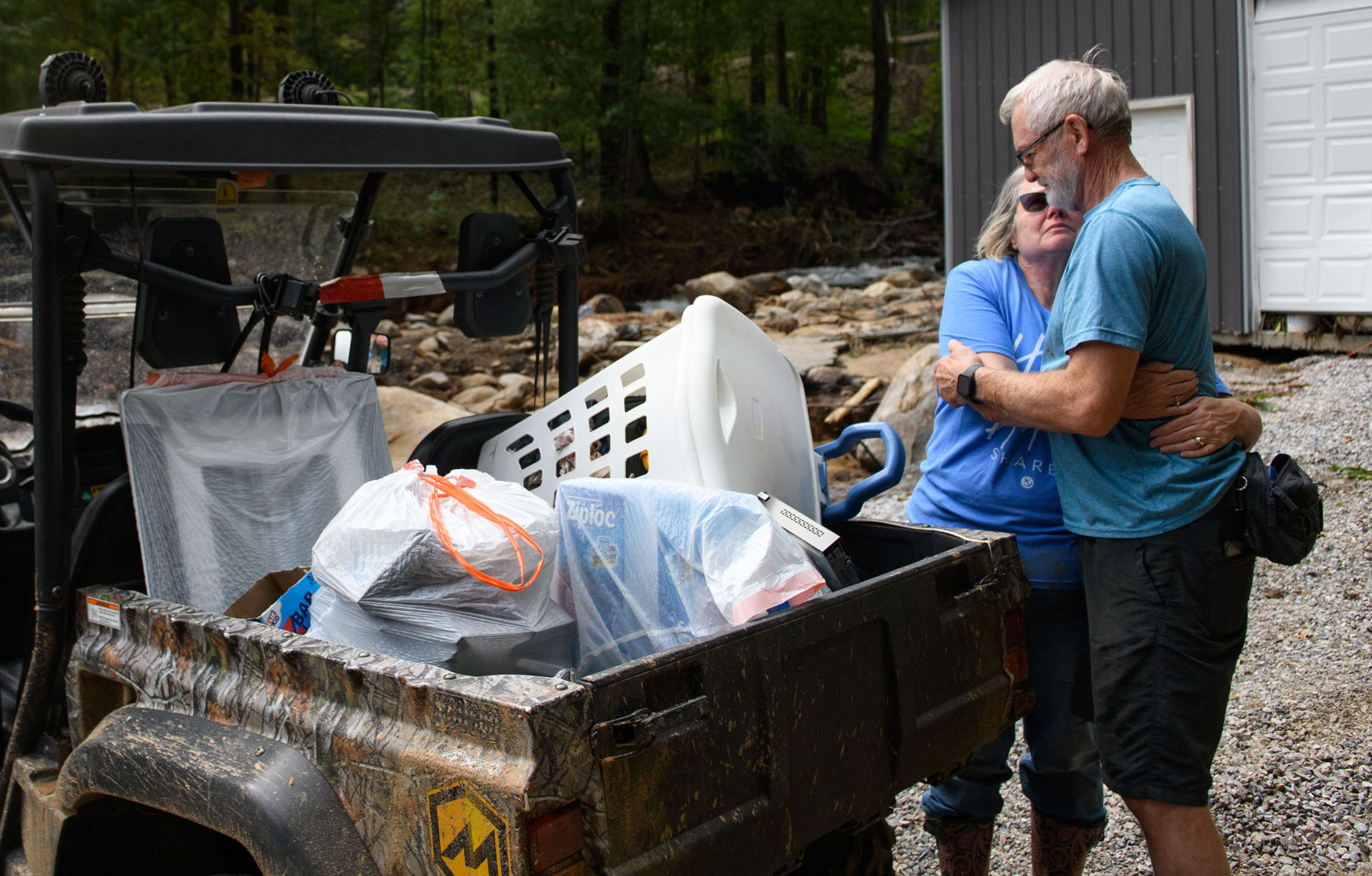
Melissa Sue Gerrits / Getty Images
She compares the impact of a natural disaster on relationships to kintsugi, the Japanese art of repairing broken pottery by sealing the cracks with gold. Highlighting the flaws makes the pottery even more beautiful. “It shows that it’s been through things, and it’s still perfectly usable, perfectly lovable, and that it survived,” she said.
You could see Ashley and Kyle’s relationship the same way.
A year after Helene, Ashley sleeps fitfully, disturbed by memories of the storm. A few months ago, she was diagnosed with PTSD, and she’s seeing a therapist. Sometimes, she goes out into the rain to do a little exposure therapy, in hopes that, over time, she’ll feel less afraid of stormy weather. She still wonders, from time to time, if it wouldn’t be better to move closer into town. That way if another disaster strikes, they wouldn’t be quite so alone.
“When it rains heavily, I know it wears on you,” Kyle said to Ashley, holding her hand. But he’s not so sure about moving. “It’s like, ‘Well, honey, we managed to escape virtually unscathed from literally an apocalyptic-level flooding event,’” Kyle said. “So, I feel pretty good.”
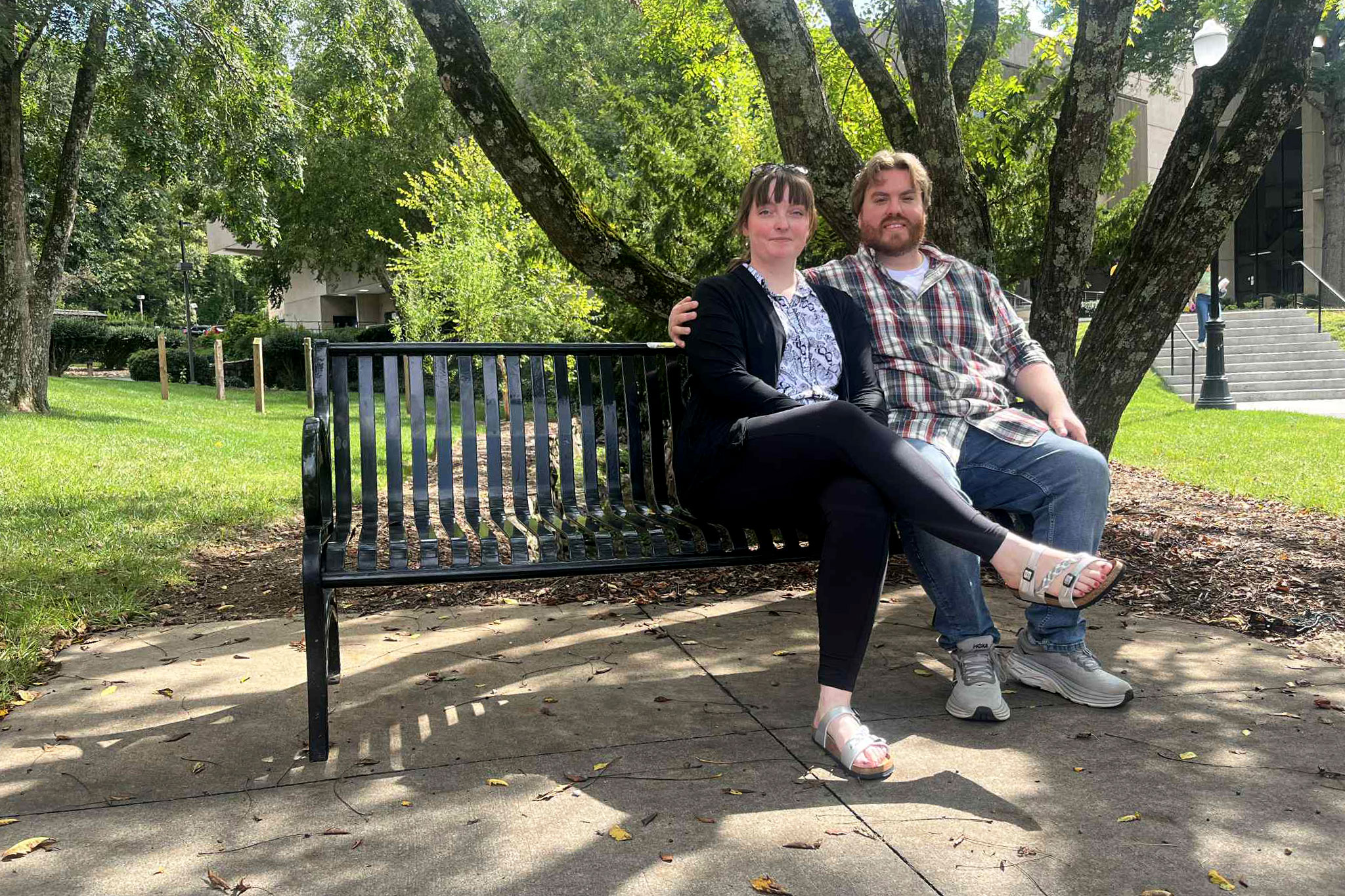
Katie Myers / Grist
Kyle sees their house as a symbol of their resilience as a couple. Ashley gets it — it was one of the reasons she hadn’t wanted to evacuate in the first place. They both know there will be more storms — literal and figurative — to weather. But Kyle is convinced they can work through whatever may come their way, together.
The way he sees it, the couple has had plenty of practice leaning on each other.
“People probably think we’re very codependent, but we’re generally really independent people,” he said. “Through COVID, through the flood. Hopefully not a rule of three thing where there’s another disaster waiting to happen —”
“Aww — shhhhh,” interrupted Ashley, with a hint of nervous laughter. “We’re not going to talk about that. We’re going to be like, flood. The end.”


